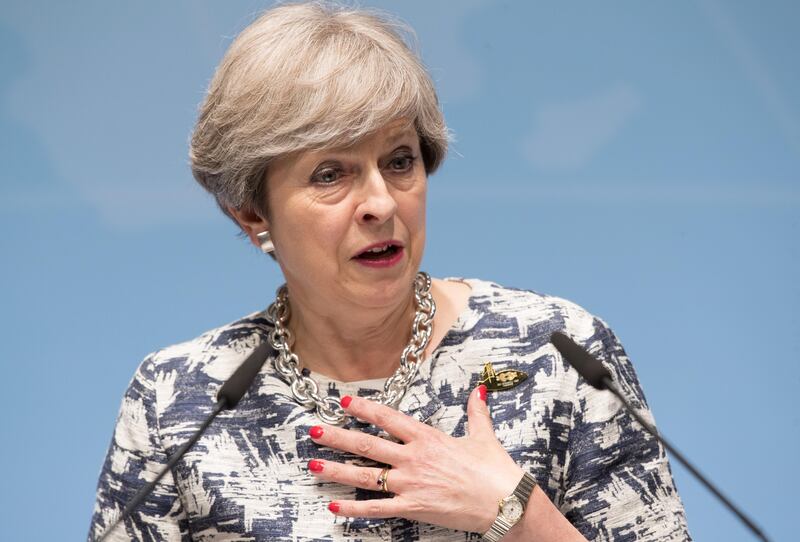The announcement on Thursday that net annual migration into the UK had dropped to its lowest level for three years, with a fall of 81,000 to 246,000 on the figures for the year to May 2016, should have provided the beleaguered Conservative with some welcome good news.
The topic of rising immigration has become toxic in British politics over the last decade for governments and coalitions of every hue, and such a significant drop – by almost exactly a quarter – should have been seized upon by prime minister Theresa May as proof that her harsh stance on migration, as premier since 2016 and previously as home secretary.
However, the triumph soon turned to ashes for Mrs May, an increasingly familiar scenario for her. First it was revealed that this decline was largely driven by increasing numbers of skilled EU workers leaving the country – dubbed a “deeply worrying Brexodus of EU citizens” by Liberal Democrat leader Sir Vince Cable.
More problematic for the prime minister, politically and especially personally, was the issue of foreign students and their inclusion in the government’s immigration target. Mrs May has long focused on this group as being a key driver of rising migration figures; under her watch the Home Office estimated that upwards of 100,000 overseas students overstayed their visas every year.
However, the immigration figures released by the Office for National Statistics (ONS) this week showed that figure was just 4,600 in the year up to March 2017. Sir Vince, who served as a cabinet minister in coalition with the Conservatives between 2010-15, called upon the prime minister to apologise for the “bogus” figures.
“We spent five years trying to persuade the Home Office that the figures they were using as evidence were bogus, but they persisted nonetheless on the basis of these phoney numbers.
“The consequences were very serious. I would hope they would not just apologise to the individual students,” Sir Vince said, “many of whom have paid large fees and even found themselves deported in some cases, but simply acknowledge that the figures are grossly distorted and wrong.”
During her six years at the Home Office, Mrs May made her name as a "safe pair of hands", the ultimate accolade in Westminster politics which undoubtedly helped her to win the premiership after the Brexit vote.
She was the longest serving home secretary for more than 60 years, a stark contrast to the chaotic tenures of the five preceding Labour politicians who held the post between them for just over five and a half years.
The Home Office has long been considered a graveyard of political ambition, as its wide remit – from national policing and border security, through immigration, prisons, social policy and much more – means that the politician at the top often bears the blame for operational errors made by the hundreds of thousands of civil servants under their notional control.
Mrs May was seen to have broken free from this unwanted tradition, despite immigration rising throughout her period at the Home Office – a time span when official government policy was to reduce net migration to the tens of thousands, a promise enshrined in the Conservative party’s election manifestos of 2010, 2015 and this year.
It now appears that her particular insistence on maintaining the counting of foreign students could lead to renewed infighting within the Tory party. Both the chancellor, Philip Hammond, and foreign secretary Boris Johnson are reportedly in favour of excluding students from the migration target.
Former cabinet minister Nicky Morgan, who chairs the Treasury select committee, said on Thursday that the ONS figures suggested “the reasons given for including students in the net migration numbers don’t really ring true”.
Bob Neill, another Conservative MP and former minister, agreed: “I think there is a growing realisation in the party that it is not realistic to be counting students because it is pretty clear that the vast majority return home. And, secondly, there is a recognition that post-Brexit our education sector, our higher education sector, is a big selling point.”
Mrs May’s strongly held belief is that voters would see a change in the policy on students as a betrayal of Tory manifesto pledges, and has previously said that “the most significant migrant route to Britain is the student route.”
With overseas student numbers radically down on 2010, and a similar dip in the investment they bring into the country, she now needs to balance the rhetoric that has attracted voters from the right of the electorate with a policy that embraces the positive economic and social contribution made by this group.






